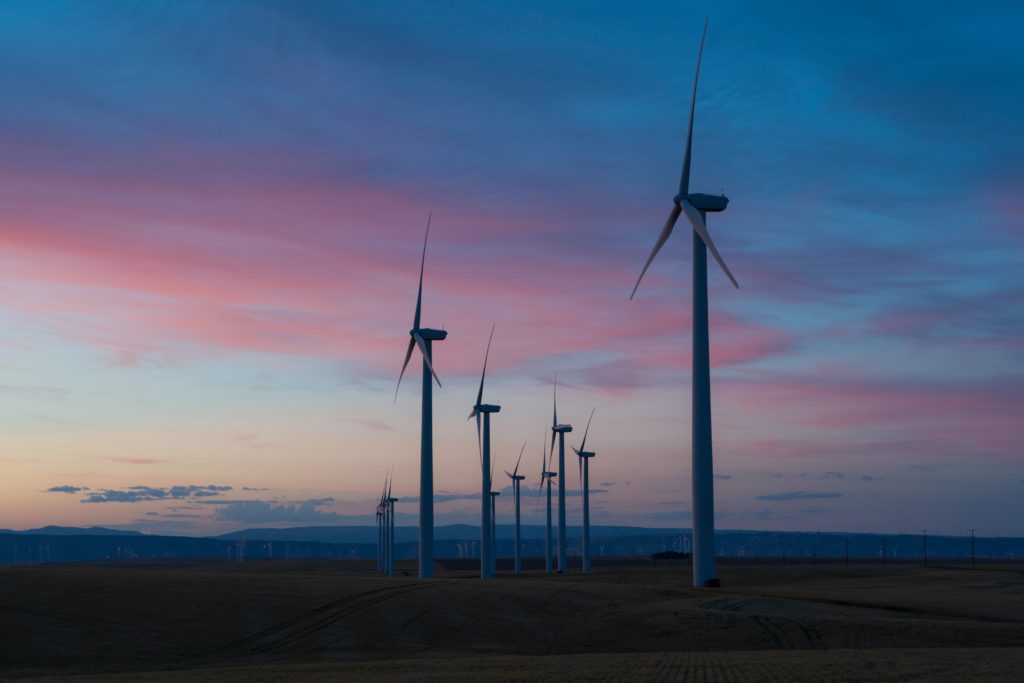The flurry of initiatives unveiled at the Glasgow Climate Summit was almost dizzying.
With the dust now settling, it seems clear that while significant progress was made, the math still does not add up—we still have not committed to global pathways that will limit warming at or below the 1.5 degrees needed to avoid the worst impacts of climate change. The recent devastation in British Columbia has given us a taste of what may be in store if action continues to fall short.
In his COP26 Concluding Statement, founder and Executive Chair of Carbon Tracker, Mark Campanale, shared that until we reach a coherent 1.5-degree global action plan, we will continue to find ourselves on a pathway of “dangerous climate change” that will threaten our financial stability and livelihoods, creating misery for hundreds of millions of people, especially those across the Global South.
The gravity of the situation has never been clearer.
The SHARE Climate Engagement team watched closely throughout the summit, and collated the key outcomes and insights about this pivotal conference, what it means for Canada’s responsible investment community, and where we go from here.
The Just Transition
The concept of a just transition—ensuring that the shift to a low-carbon economy doesn’t come at the expense of affected workers and communities—emerged as a key issue at COP26.
In parallel with commitments to transition from coal to clean power, 30 nations (including Canada, the United States, United Kingdom, and all EU member states) signed the Just Transition Declaration, pledging to support workers transition to new jobs, decent work, social dialogue, and human rights.
Many governments and civil organizations, including The Pan African Climate Justice Alliance, were quick to point out, however, that the announced plans and much of the proceedings at COP were focused on the Northern agenda to defer urgent action on climate and pursue half-measures while ignoring the immediate needs of the Global South. As one example, no separate funds were announced which would cover the sweeping loss and damage the world’s most vulnerable countries are already experiencing, as wealthy nations including the United States, EU, Australia and host UK, successfully blocked the inclusion of a Loss and Damage Finance Facility to provide funds for countries hit by extreme weather and sea level rise.
The transition to net-zero is a significant opportunity to address the structural inequities and exploitation that too often exist in extractive economies. However, it won’t happen without clear corporate commitments to, and application of, just transition principles.
For example, while investments rapidly expand in renewable energy, we are also seeing reports of systemic human rights abuses in the industry. Investors will need to increasingly pay attention to these issues and uphold the notion that climate justice and human rights must go hand-in-hand. Thankfully, a number of new benchmarks have been developed to spur on engagement and corporate action.
Simon Lewchuk is an Advocacy Specialist at SHARE; he engages Canadian and US companies on climate change and just transition.

Canada at COP
On November 1, Prime Minister Trudeau announced that Canada would become the first major oil-producing country committed to capping and reducing pollution from the oil and gas sector to net zero by 2050. To help do this at a pace and scale needed to achieve this commitment, the government will set five-year targets, and will also ensure that the sector makes a meaningful contribution to meeting Canada’s 2030 climate goals. Canada also urged all countries to adopt a global price on carbon, to curb the use of fossil fuels and level the playing field for countries like Canada that already impose a levy on emissions. Then, on November 4, the Federal Government announced a commitment to end subsidies that help oil and natural gas companies operate and expand outside the country by the end of 2022.
While these announcements are largely focused on Canada’s Oil and Gas industry, corporations and investors across all sectors of the economy should take note of the pace and ambition of the Canadian Government’s Net Zero commitments. In particular, the commitment to end international subsidies for the sector is a significant step in acknowledging the role of public investments and their alignment with a 1.5-degree scenario.
In future years, attention needs to shift to ending domestic subsidies to the sector, which could be as much as two times higher than the financial support the Federal Government provides to international projects.
All of us should view Canada’s commitment with a healthy dose of caution. Canada will have to demonstrate alignment between its net zero ambitions and its performance. Over the past six years, the country has missed all of its net zero targets and has even made direct investments in oil and gas projects, such as the purchase of the Trans Mountain Pipeline.
Omar Dominguez is a Manager of Advocacy and Engagement at SHARE; he is responsible for coordinating Canadian investors participating in Climate Engagement Canada.
Global Climate Reporting Standards
One development that might have gotten lost in the shuffle was the International Financial Reporting Standards (IFRS) Foundation’s announcement of the formation of the International Sustainability Standards Board (ISSB), which will seek to develop “a comprehensive global baseline of high-quality sustainability disclosure standards to meet investors’ information needs”. Both the Climate Disclosure Standards Board and the Value Reporting Foundation have committed to consolidating into the newly formed ISSB by June 2022.
We have seen that harmonized voluntary reporting standards will not be what gets the world on track for 1.5 degrees, but they have also been in demand for so long among both investors and values-aligned companies. There is a lot of work left to be done, but the stage is set and the right actors are there to create a robust, widely accepted, and globally adopted sustainability reporting standard.
Mike Toulch is an Engagement Research Specialist; his expertise in climate change standards and accountability frameworks informs SHARE’s engagement and public policy advocacy.

Nature and Biodiversity
On COP26’s “Nature” day, governments and businesses made commitments to halt and reverse forest loss and land degradation by 2030. This commitment was endorsed by 141 countries covering 91% of the world’s forests, and is reflected in the Glasgow Leaders’ Declaration on Forest and Land Use. In a similar show of commitment, 108 high-profile private sector companies committed to halting deforestation by 2030, and becoming “nature positive” through the UK’s Get Nature Positive campaign.
The nature-related commitments made at COP26 are a step in the right direction as it acknowledges the important role forests, biodiversity, and sustainable land use play in mitigating the impacts of climate change. This trend has been growing among the investor community in recent years, as nature-related risks can have significant financial implications for investors.
With the Taskforce on Nature-related Financial Disclosures (TNFD) launching a beta version of its framework in early 2022 and the post 2020 global biodiversity framework being finalized mid-2022, “nature positive” may just become the new “net zero” target for both companies and investors alike.
Joanne Lau is an Engagement Research Officer at SHARE; she provides research to support engagement with Canadian and US issuers.
Scaling up Investor Action for a 1.5 degree future
Behind all the headlines and hype, a number of organizations who provide the research and analytical underpinnings to collaborative climate engagements are scaling up their work and increasing their capacity. Organizations such as the Science-Based Targets Initiative, the Transitions Pathways Initiative, Carbon Tracker and Influence Map, are all expanding their capacity, reporting, analysis and oversight. In other words, we are building the ecosystem needed to give the investor voice more power and impact, to accelerate and improve the quality and quantity of our engagement efforts.
What does this mean for Canadian responsible investors? It means, most immediately, that the newly unveiled Climate Engagement Canada will be able to harness hard-hitting analysis from reputable, established research partnerships, making our conversation with top emitting issuers in Canada all the more effective. And that is exactly what we need right now: for Canada to meet its climate targets, corporate Canada needs to accelerate its action plans and chart and express route for a low carbon future. Canadian investors are now well-positioned to help make this a reality.
Jennifer Story is Associate Director of Climate Programs; she has oversight of SHARE’s engagement and policy initiatives on climate and sustainability.
Featured image courtesy of UNFCCC.


